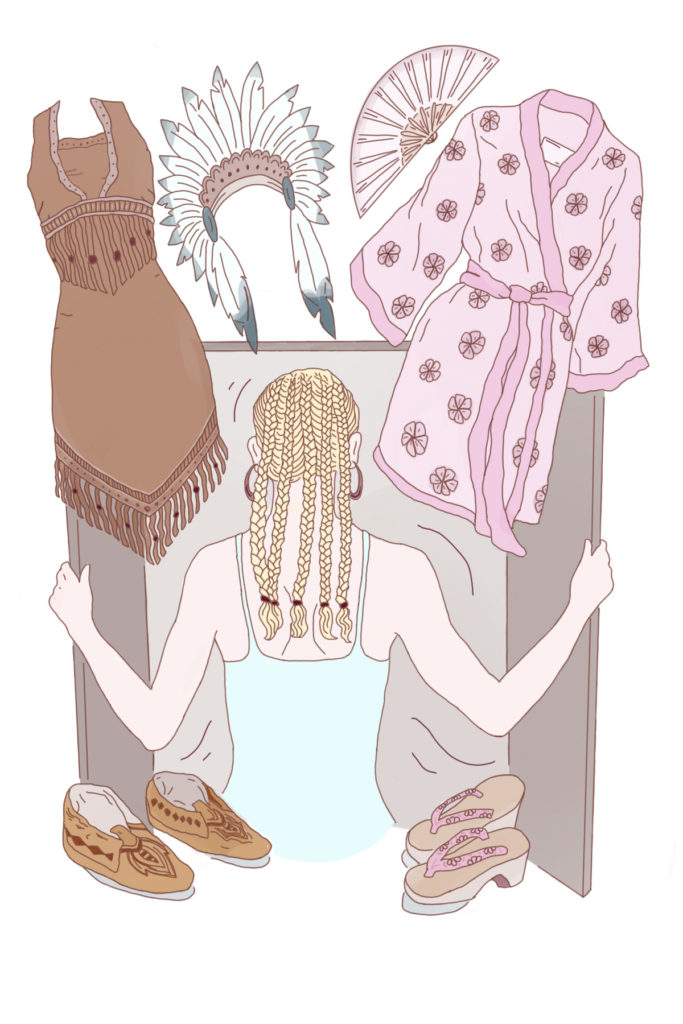What’s Wrong with Cultural Appropriation? These 9 Answers Reveal Its Harm — Part 2
This is a continuation of last week’s post – check out part one here

6. It Spreads Mass Lies About Marginalized Cultures
“If you think about the real story of Pocahontas, having your daughter pretend to be her on Halloween is pretty disturbing. The real Pocahontas, whose given name was Matoaka, was abducted as a teenager, forced to marry an Englishman (not John Smith, by the way), and used as propaganda for racist practices before she died at the age of 21.
And it almost feels like that propaganda never ended, as our popular lessons on what happened between colonizing settlers and Indigenous people depict Native people as savages, or as happy, mystical characters, or as entirely absent.”
7. It Perpetuates Racist Stereotypes
“Katy Perry, for example, said that her performance as a geisha during the 2013 American Music Awards was an homage to Japanese culture… With her single “Unconditionally,” Perry sang about undying love while playing up the image of a passive, submissive sexual object of an Asian woman.
For her, it was just a character – but this stereotypical image has real consequences for Asian women in the US. Their experiences with dating, racialized sexual harassment, and fetishization reveal that white men actually expect Asian women to live up to the “exotic geisha girl” stereotype”
8. White People Can Freely Do What People of Color Were Actively Punished for Doing
“It can feel like a slap in the face to see carefree white people enjoy the practices your ancestors were penalized for.
It’s also an unsettling reminder that the process of taking our practices from us isn’t over, as white folks end up having more access to our practices than we do.”
9. It Prioritizes the Feelings of Privileged People Over Justice for Marginalized People
“We have a lot of work to do to heal from the impact of oppression from the past through present day. Many examples of cultural appropriation may seem like not a big deal, or like we should have “more important” things to worry about.
But changing oppressive everyday norms is a huge part of the work. It’s one of the ways we can help stop the way society dehumanizes, erases, and ostracizes people of color.”
Maisha Z. Johnson closes out her article with this:
“I’m not saying you automatically can’t enjoy Mexican food if you’re not Mexican, or do a yoga-inspired practice if you’re not Indian, or use any other culturally specific practice in the US.
But I am encouraging you to be thoughtful about using things from other cultures, to consider the context, and learn about the best practices to show respect.”
If you have any thoughts on this piece, be they positive, negative, or anywhere in between, please share them with us in a comment below.
-Your Friends at Undoing Racism


